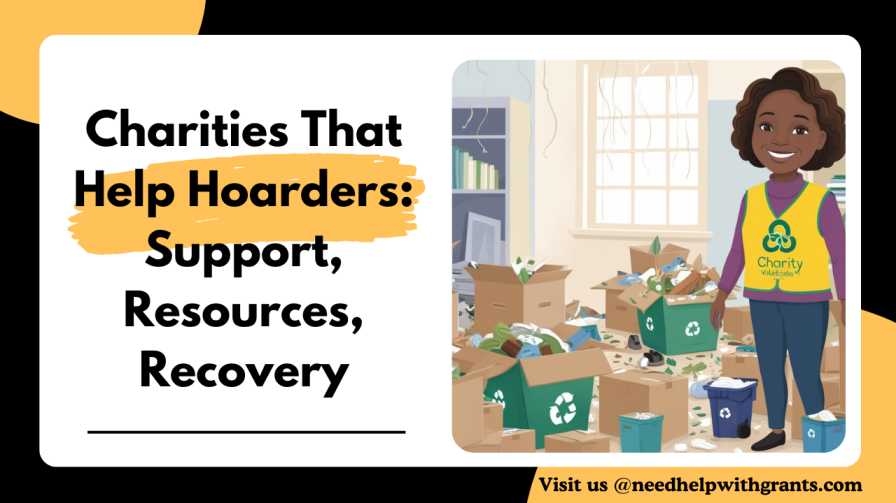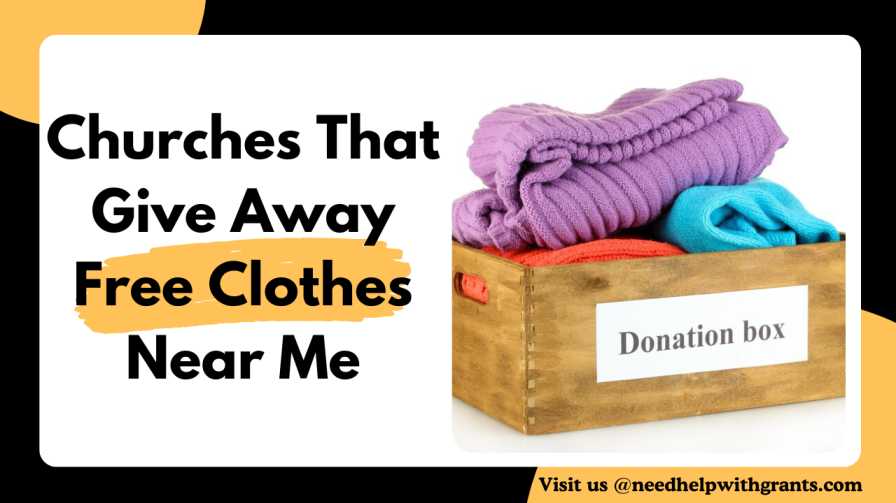Hoarding is a complex disorder often involving emotional attachment to items others may see as clutter. Charities play a key role in helping hoarders by addressing this disorder’s root causes and consequences, offering vital support that helps rebuild lives.
What is Hoarding Disorder?
Hoarding disorder is characterized by extreme difficulty parting with property without regard to its true value. People with this disorder tend to accumulate a lot of things, filling their living space with clutter that makes basic tasks like cooking, sleeping, or walking independently difficult or impossible. This accumulation can cause unsafe living conditions, stress, and harm to individuals and families.
How Charities Provide Support for Hoarding Recovery?
Charities play an important role in helping individuals struggling with hoarding issues by providing various services that deal with the practical and emotional aspects of the disorder. Charitable support often includes mental health counseling, help with cleaning, and education for individuals and families.
Charities assist individuals with hoarding disorder by offering emotional, practical, and financial support. Here’s a summary of their main services:
☑️Emotional and Mental Health Support: Charities like NAMI offer counseling and support groups to help various people address emotional reasons for hoarding and develop healthy habits.
☑️Hands-On Clean-Up Assistance: Many charities partner with volunteers or professionals to help tidy up homes in a compassionate, non-judgmental way, ensuring a safe and functional living space.
☑️Financial Aid and Grants: Some organizations offer financial assistance for clean-up costs, making professional services more affordable for individuals in need.
Through these resources, charities help hoarders begin their journey to a healthier, clutter-free life.
Types of Programs Available for Hoarders
Charities offer a range of programs designed to support hoarders in various aspects of recovery. Here are some key types:
☑️Counseling and Therapy Programs: Many organizations offer mental health services to address the emotional roots of hoarding. These programs often include individual counseling, support groups, and workshops that help individuals understand and manage their behavior.
☑️Hands-On Cleaning Assistance: Some charities offer practical, on-site help to clean and declutter living spaces. Volunteers or specialized teams work alongside individuals, providing guidance and support to sort, organize, and safely dispose of items.
☑️Financial Assistance Programs: Some charities offer financial assistance or grants to help cover costs associated with professional cleaning services. This support makes it easier for collectors to pay for cleaning and organizing services.
☑️Family Education and Support: Many programs offer resources for family members, including workshops and support groups. These programs help loved ones understand hoarding disorder and equip them with tools to support the individual effectively.
☑️Ongoing Support and Follow-Up: Some organizations provide ongoing check-ins and follow-up support to ensure individuals stay on track. This continuity of care helps prevent relapse and encourages long-term improvement.
Each of these programs provides essential support, making it possible for hoarders to tackle recovery from multiple angles and with a strong support network.
Top Charities that Help Hoarders
Several charities offer specialized support for individuals struggling with hoarding. Here are some of the most effective organizations providing assistance:
National Alliance on Mental Illness (NAMI)
NAMI provides mental health support through local chapters, consulting, and support groups to help collectors deal with hidden mental health issues such as anxiety and OCD.
International OCD Foundation’s Hoarding Center
This International OCD foundation focuses on hoarding disorder and offers resources, and educational materials, and connects individuals with local support groups and professionals specializing in hoarding recovery.
Goodwill Industries
Known for its community support, Goodwill offers various programs that can assist hoarders with employment, financial support, and clean-up resources, helping them regain stability.
The Salvation Army
The Salvation Army provides essential services, including assistance with housing, clean-up support, and counseling. Many local branches work directly with hoarders to improve their living conditions and mental health.
Community Outreach Programs
Local charities and community outreach centers often provide tailored support, such as volunteer-based clean-up services and family counseling, specifically for hoarders. These organizations usually have strong ties within the community and can provide hands-on help.
Clutterers Anonymous (CLA)
The organization works similarly to support groups like AA but focuses on people struggling with clutter and hoarding. CLA provides meetings, resources, and a supportive community to help hoarders manage their behavior in a supportive environment, safe and has complete information.
Habitat for Humanity
Known for building homes, Habitat for Humanity also partners with local agencies to offer clean-up and home repair services for those dealing with hoarding. They assist with creating safe, livable spaces through volunteer-led projects.
AARP Foundation
For seniors who struggle with hoarding, the AARP Foundation provides resources, support, and connections to local programs that can assist with decluttering and counseling. They also offer support for family members navigating these issues with elderly loved ones.
Catholic Charities USA
Catholic Charities provides a wide range of services, including mental health counseling, financial assistance, and, in some cases, cleaning assistance. Their holistic approach focuses on the emotional and physical aspects of hoarding disorder to help individuals regain a sense of control over their lives.
SAMHSA (Substance Abuse and Mental Health Services Administration)
SAMHSA offers mental health resources specifically geared toward conditions like hoarding that intersect with other behavioral health issues. They provide a national directory of services, including therapy and support groups, making it easier to find local assistance.
These charities offer a range of services that compassionately and effectively address hoarding. Through partnerships and specialized programs, they support individuals in building healthier environments and improving their quality of life.
How to Find and Reach Out to Charities that Help Hoarders?
Finding charities that provide support for hoarding disorder can be simple if you know where to look. Here are effective ways to locate and connect with these organizations:
☑️Research Local Mental Health Organizations
Start by searching for local mental health groups, such as chapters of the National Alliance on Mental Illness (NAMI) or community health centers. They are often a resource for collectors. Many of these organizations have online directories and contact information on their websites.
☑️Check Online Directories for Support Groups
Websites like the International OCD Foundation’s Hoarding Center provide directories to locate hoarding-specific support groups and services. Clutterers Anonymous (CLA) also lists local and virtual meetings on its website where individuals can connect for support.
☑️Contact Local Churches and Community Outreach Programs
Churches and community centers frequently offer assistance or referrals to those in need, including hoarders. Contact organizations like the Salvation Army or Catholic Charities, which may provide mental health services, clean-up aid, or family counseling.
☑️Reach Out to Senior Support Agencies
For elderly individuals, agencies like the National Council on Aging (NCOA) and AARP can connect you to resources and charities that specialize in supporting seniors with hoarding issues. These organizations often have specific programs designed to address mental health and safety concerns in senior living environments.
☑️Call Hotlines for Immediate Assistance
National mental health hotlines, like SAMHSA’s helpline, provide free support and can refer you to local organizations that offer hoarding assistance. These hotlines are a great starting point if you’re unsure of available resources nearby.
Tips for Reaching Out to Charities
- Be Specific About Your Needs: Clearly explain what assistance you need, such as counseling, clean-up help, or financial support.
- Ask About Eligibility Requirements: Some programs may have specific requirements, so asking about eligibility will help you find the right support faster.
- Request Referrals: If a charity can’t provide direct assistance, ask if they can refer you to another organization or professional who specializes in hoarding recovery.
By combining these methods, you can quickly find and connect with charities that provide meaningful, compassionate support to help manage and overcome hoarding disorder.
Application Procedure for Financial Help for Hoarders
Applying for financial assistance to address hoarding disorder involves several key steps. Here’s a general outline of the application procedure to help you access financial aid:
1. Identify Suitable Charities or Programs
Research organizations that provide support to individuals with hoarding disorder, such as NAMI, Catholic Charities, and local community mental health centers.
Explore government programs (like HUD) or senior-focused charities (e.g., AARP, National Council on Aging) that may offer aid for hoarding-related expenses.
2. Prepare Documentation
Gather relevant documents, including proof of financial need (e.g., income statements or tax returns).
Obtain a mental health assessment or medical documentation if required, as this can demonstrate the necessity of support for hoarding.
Be prepared to provide proof of residency, identification, and any additional paperwork requested by the organization.
3. Contact the Organization
For charities or government agencies that interest you please contact us by phone, email, or via the website.
Explain your situation clearly and ask about financial assistance programs related to hoarding disorder or general mental health support.
Ask if there is an application form or not, or ask about the process if it’s not accessible online.
4. Fill Out the Application Form
Complete the application with accurate information. Be clear about the type of assistance needed (e.g., clean-up support, therapy, home repair).
Describe your financial situation and how hoarding affects your daily life. Mention any physical or safety issues related to hoarding that make financial assistance crucial.
Some applications may require a personal statement; use this space to explain how the funds will help you improve your living conditions or mental well-being.
5. Submit the Application
Submit your completed application via the organization’s preferred method (online portal, email, mail, or in-person submission).
Confirm the submission guidelines to avoid delays or misplacement, especially for mailed applications.
6. Follow Up on Your Application
Contact the organization within a few weeks to check on the status of your application if you haven’t received a response.
Ask for an estimated timeline for approval and inquire if any additional steps are needed.
Tips for a Successful Application
- Provide Clear and Honest Information: Accuracy is essential to prevent delays and to ensure that you qualify for the assistance.
- Be Patient and Persistent: Processing times can vary, so regular follow-up can help keep your application on track.
- Apply to Multiple Organizations: This can increase your chances of receiving aid, especially if funds are limited.
By following these steps, you’ll be well-prepared to navigate the application process for financial aid, helping you access the support needed to manage hoarding disorder effectively.
Conclusion
Seeking financial help to manage hoarding disorder can be a transformative step toward creating a safer, healthier living environment and addressing the underlying mental health challenges associated with hoarding. Many charities, government programs, and community organizations offer tailored assistance, including clean-up services, therapy, and financial support, to individuals struggling with hoarding.
FAQs
How can charities help hoarders with mental health?
Charitable organizations often provide advice, support groups, and workshops dealing with the mental health component of collecting. By providing access to mental health professionals they help individuals face the emotional aspects of hoarding. This may lead to a better relationship with property.
What are the best charities that support hoarding recovery?
Top charities for hoarding recovery include NAMI, the International OCD Foundation, and local community organizations. These charities offer comprehensive resources for hoarding disorder, including counseling, financial aid, and cleanup support.
How can family members get support for helping a hoarder?
Family members can benefit from workshops and support groups specifically designed for families of hoarders. These resources teach strategies for healthy boundaries and empathetic communication, making it easier to provide effective support.



